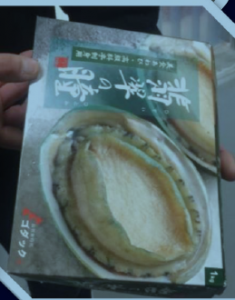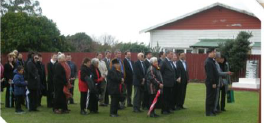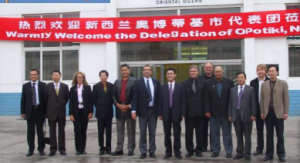Ōpōtiki on TV
Ōpōtiki is sure doing things the community-led way. The long journey continues. It’s great to watch them acknowledge and celebrate their amazing achievements to date. It’s been a privilege for Inspiring Communities to walk alongside and support Ōpōtiki’s kaupapa and mahi for many years.
Watch Seven Sharp’s story about their Mussel Farm
Ōpōtiki using their taonga to harbour a dream
Decades ago, some Whakatōhea kaumatua advocated farming the sea, and rebuilding the marine based economy which the Iwi had been renowned for pre-confiscation. At the time there was scepticism – maybe the vision seemed impossible….
Ōpōtiki now has the largest offshore marine farm in New Zealand and local iwi, Te Whakatōhea is the majority shareholder. Over the past 20 years Te Whakatōhea and partners have co invested in research and farming infrastructure to harvest spat and grow mussels. Both are now being produced at extraordinary rates.
It’s now time to fulfil the plans to develop the Ōpōtiki Harbour so that both the farm can be serviced and the mussels processed locally – generating local jobs and wealth. Regional commitment to investment is lined up, awaiting government commitment so that construction can commence.
Ōpōtiki, an eastern Bay of Plenty sea side town resident to nearly 5 thousand, was once considered one of New Zealand’s most deprived communities. The town has had heavy unemployment, decreases in population, and a large dependence on government benefits. Increasingly both locals and outsiders are perceiving it differently. They’re beginning to believe that benefits plus seasonal work in kiwifruit need no longer be the only option for a significant portion of the population.
Through their joint leadership, Te Whakatōhea and the Ōpōtiki District Council have integrated iwi and community-led development approaches to empower their community’s transformation.
Shared local visions drive action and change
Ōpōtiki had a desire for change, they envisioned a community that could be more sustainable: Iwi saw opportunity for economic growth congruent with their values and aspirations, that would lead to job opportunities for their people; the Council saw potential in a sustainable seafood industry, along with other industries enabled by a viable harbour, which would all support the community’s wider vision for change.
Using existing strengths and assets
UTe Whakatōhea has a strong connection to the sea. Traditionally known as enterprising seafarers and coastal traders, their history is closely linked to the ocean. The community saw their vision as an asset, one of great value in rebuilding a vibrant local economy and wellbeing. Layered over this was Ōpōtiki harbour. It had been developed in European settlement times for whaling and coastal trading, and was once a busy, thriving harbour – a connection to both European and Māori heritage.
Many people, groups and sectors working together
MTe Whakatōhea, settled on their vision to develop the marine farm, reached out to multiple groups and organisations to assist. Ōpōtiki District Council, with community support got behind the initiative, taking leadership to develop the Harbour. Getting the marine farm underway and confirming the viability of the harbour development has been complex. Processes with community, iwi, multiple central and local government layers, scientist, researchers, investors and a wide range of businesses. There’s been effort regionally, nationally and internationally over many years and that’s created more relationships and trading opportunities both here and overseas.
The Ōpōtiki Marine Advisory Group, established nearly a decade ago, has been a constant thread at the local level, bringing Council, Te Whakatōhea, marine farm leadership and other business people, to the table, along with funders, the regional council and economic development agency.
Working adaptively, learning informs planning and action
WOver the decades of persistence, patches of progress have been frequently interrupted by knock- backs and road- blocks. Two things stand out. One is a collective determination to keep going, learning from experience and adapting to new circumstances and ideas. The other is the value of diverse skills, knowledge and leadership skills around the tables driving these projects, which means different people and organisations can step up when leadership is needed, and then step back as new challenges and opportunities emerge, demanding other expertise.
Watch Ōpōtiki Mussell Farm on Seven Sharp.
He Oranga o te rohe o Te Whakatōhea wellbeing survey
The time for reclaiming our iwi identity is upon us as we look forward, and at the same time, look back to the ways we once were.
To begin to do this, Whakatōhea Maori Trust Board developed and implemented a Wellbeing Survey to provide a clear and concise picture of our current position and status. 750 people who whakapapa to Whakatōhea and live in the Ōpōtiki community were interviewed.
Read more; He Oranga o te rohe o Te Whakatohea Wellbeing Survey
Ōpōtiki’s ‘Computers in Homes’ project
The importance of a skilled and work-ready community is vital for Ōpōtiki and the Eastern Bay of Plenty as aquaculture, tourism and other regional economic strategies progress.
Connectivity is a key part of this and computer skills are a “must have” for so much of the training and employment that is emerging.
While children get some access to computers at school, for many Ōpōtiki families there are not computers in the home and families cannot easily support their children’s on-line learning or advance their own skills. Thanks to a chance meeting over dinner at Victory Village in mid 2011, things were about to change.
Read more; Opotikis Computers in Homes project
Opotiki’s Murals
The “look” of a place has a big influence on how it “feels”, for locals and for visitors alike.
The Opotiki murals have been recognised globally. The Murals not only represent those who live there now but also those who have gone before, and aspirations for the future.
Read more; Opotiki Murals – community building through creative expression
The Motu Trails Cycle Project
The test of true community leadership was trialled in the East Coast with four organisations collaboratively working to construct and develop the Motu Trails Cycle Project.
The trails, which were officially opened in May 2012, have already attracted much attention and use by a number of visitors and locals and are considered a major attraction to the Opotiki and Gisborne Districts.
Read more; The Motu Trails Cycle Project




